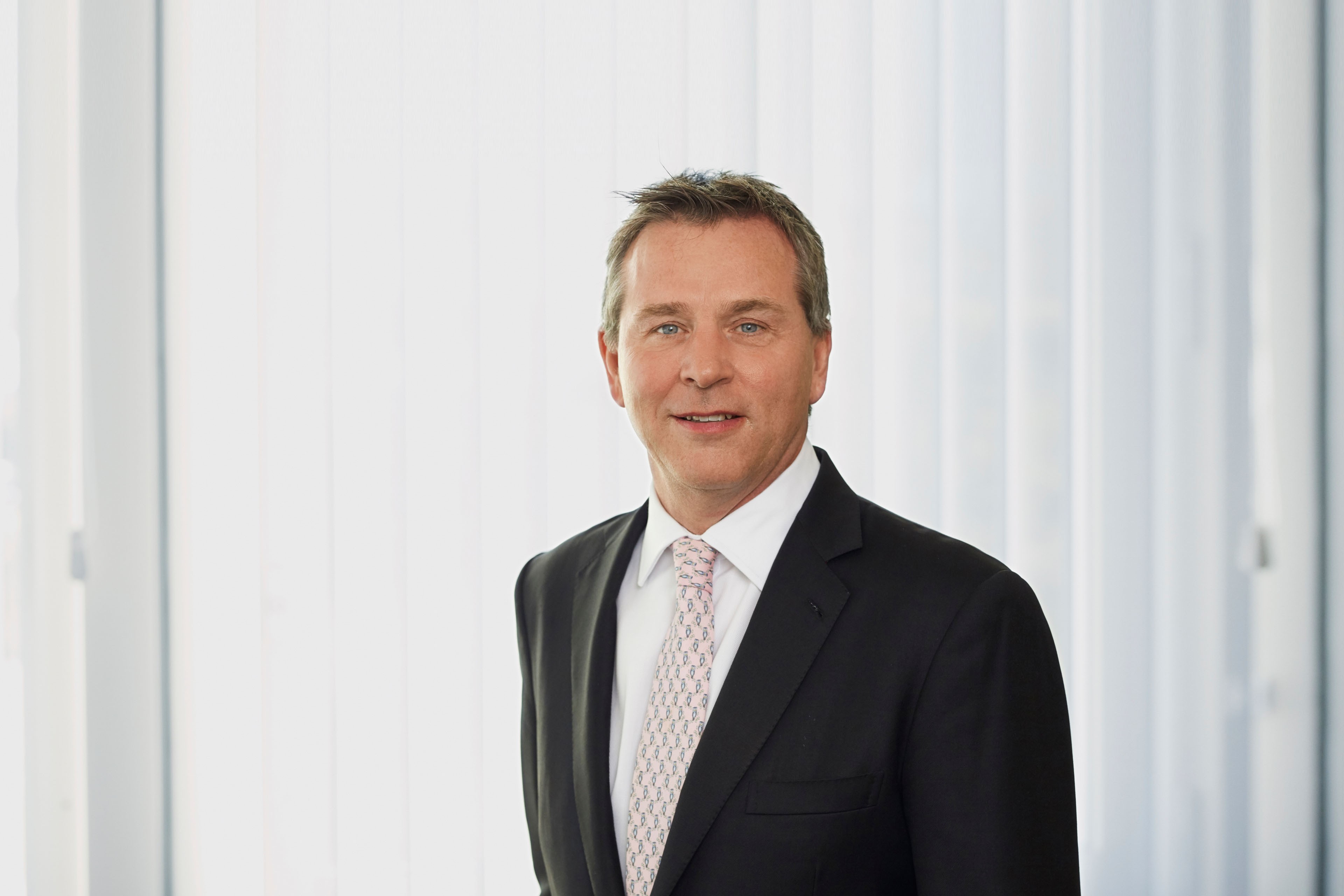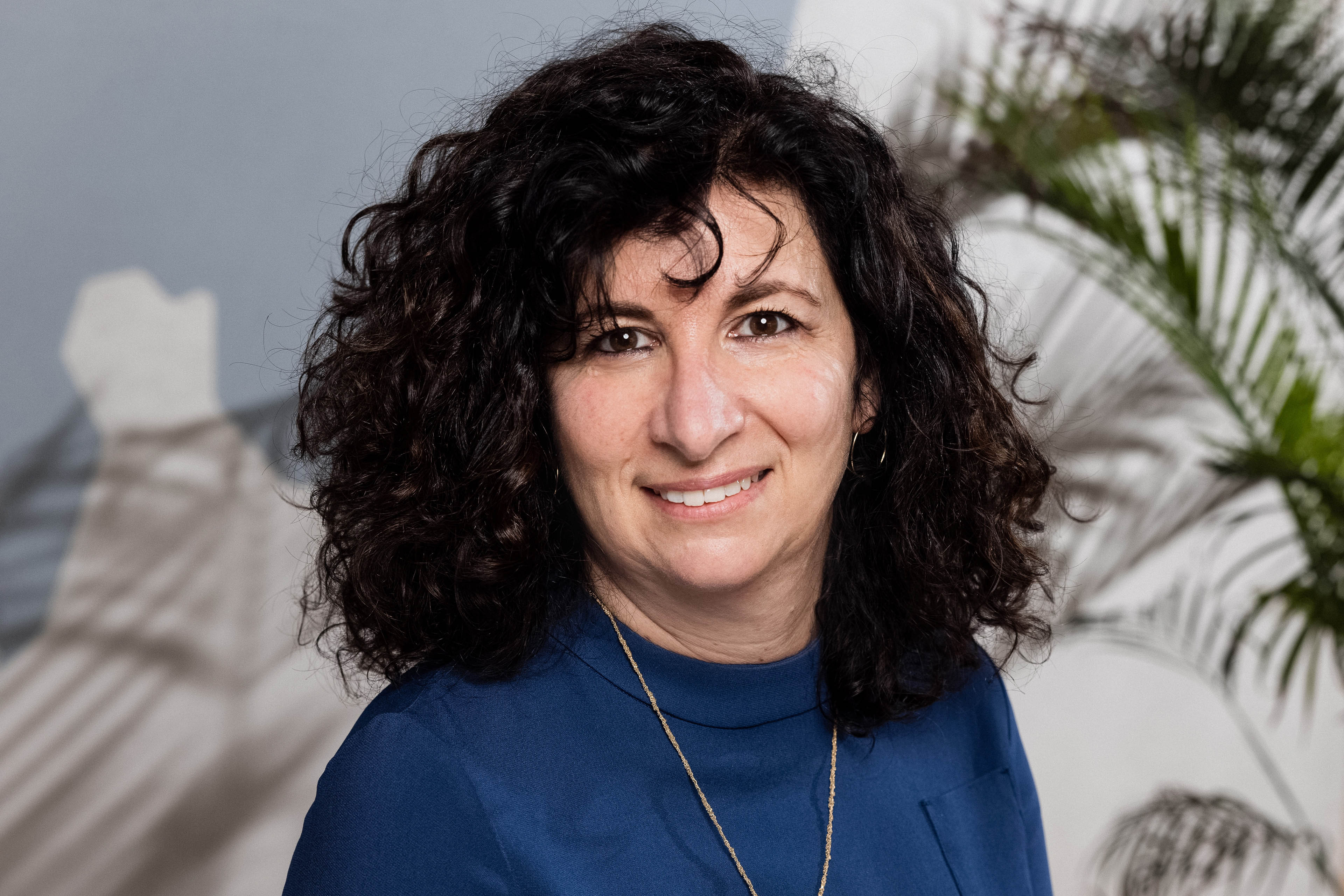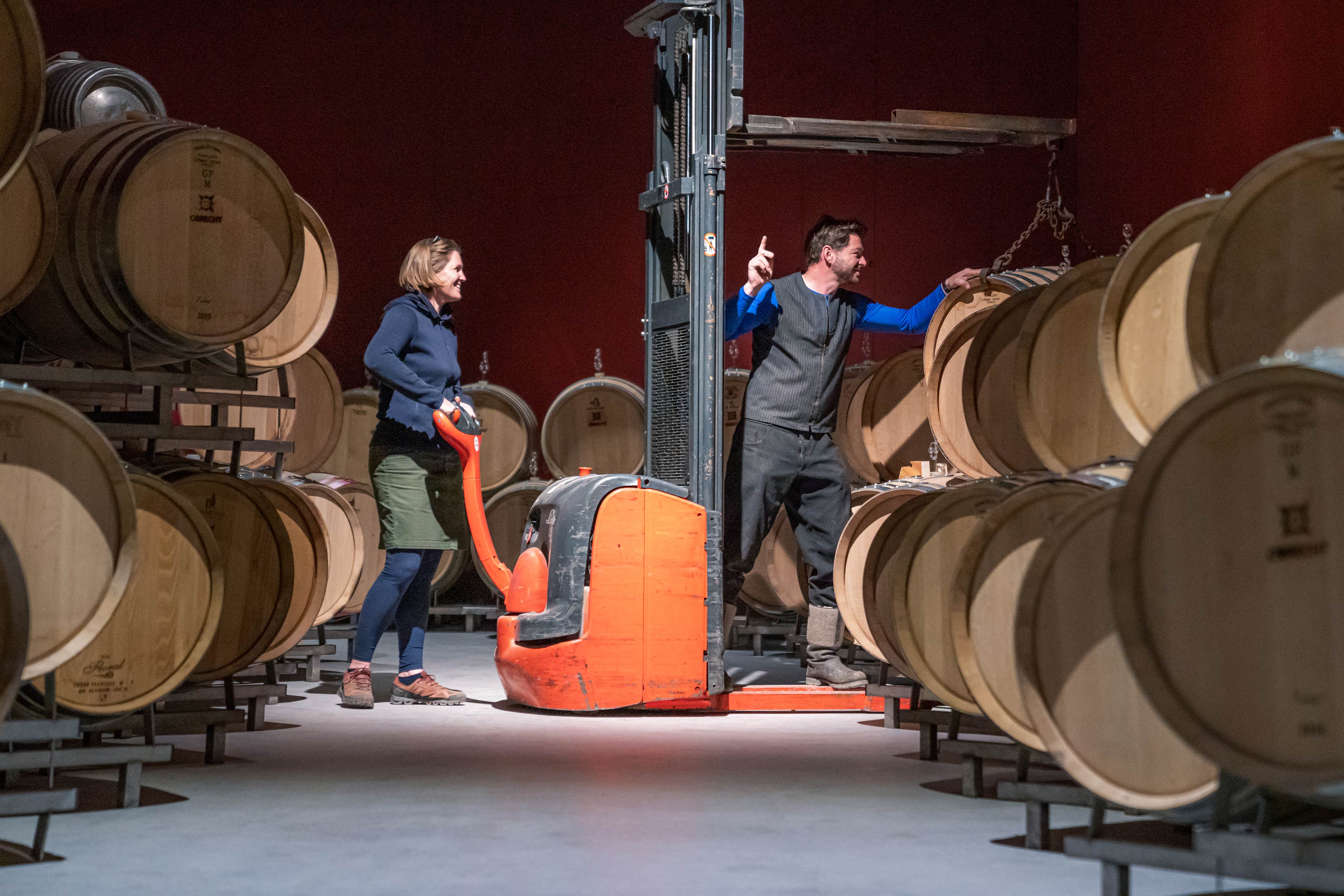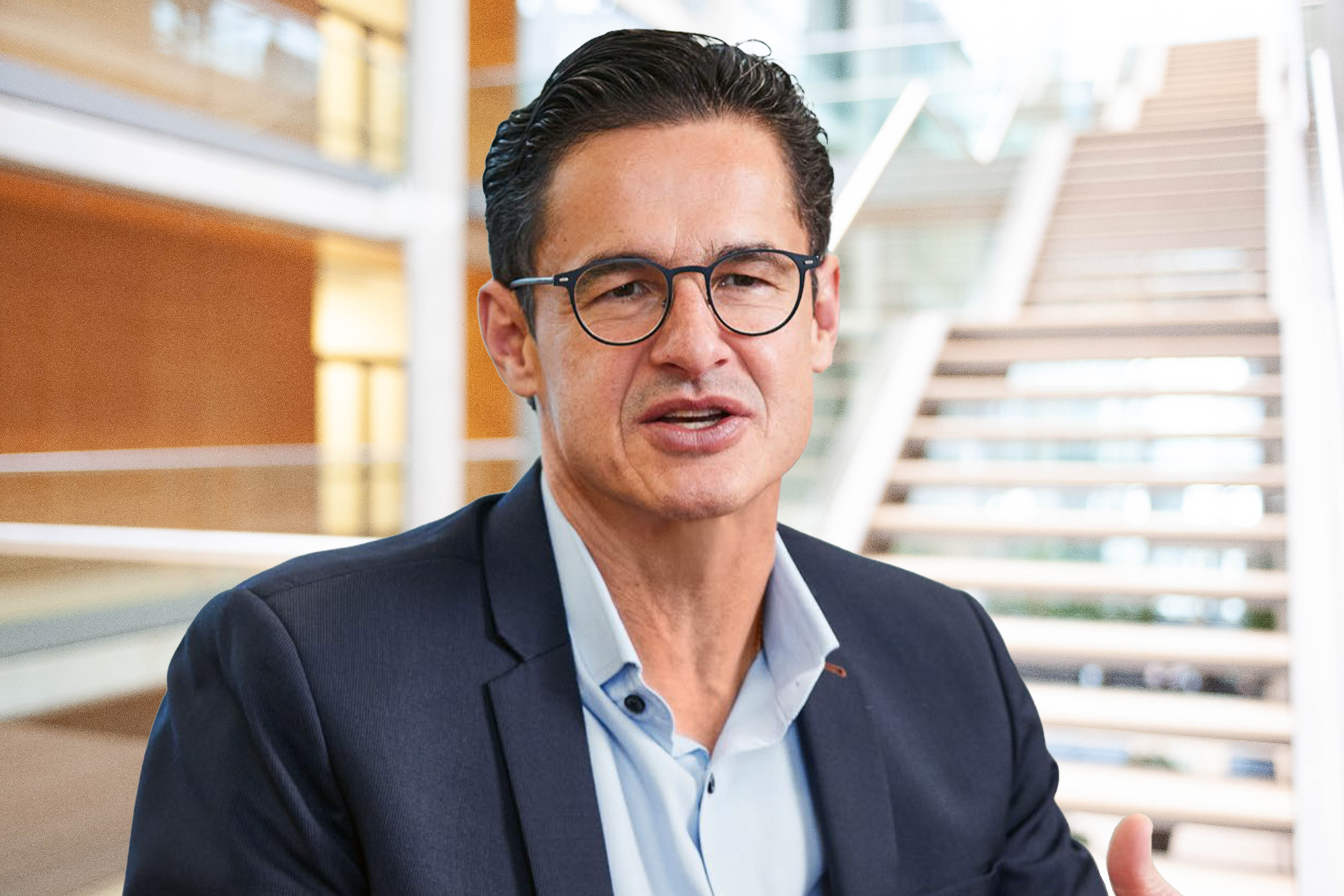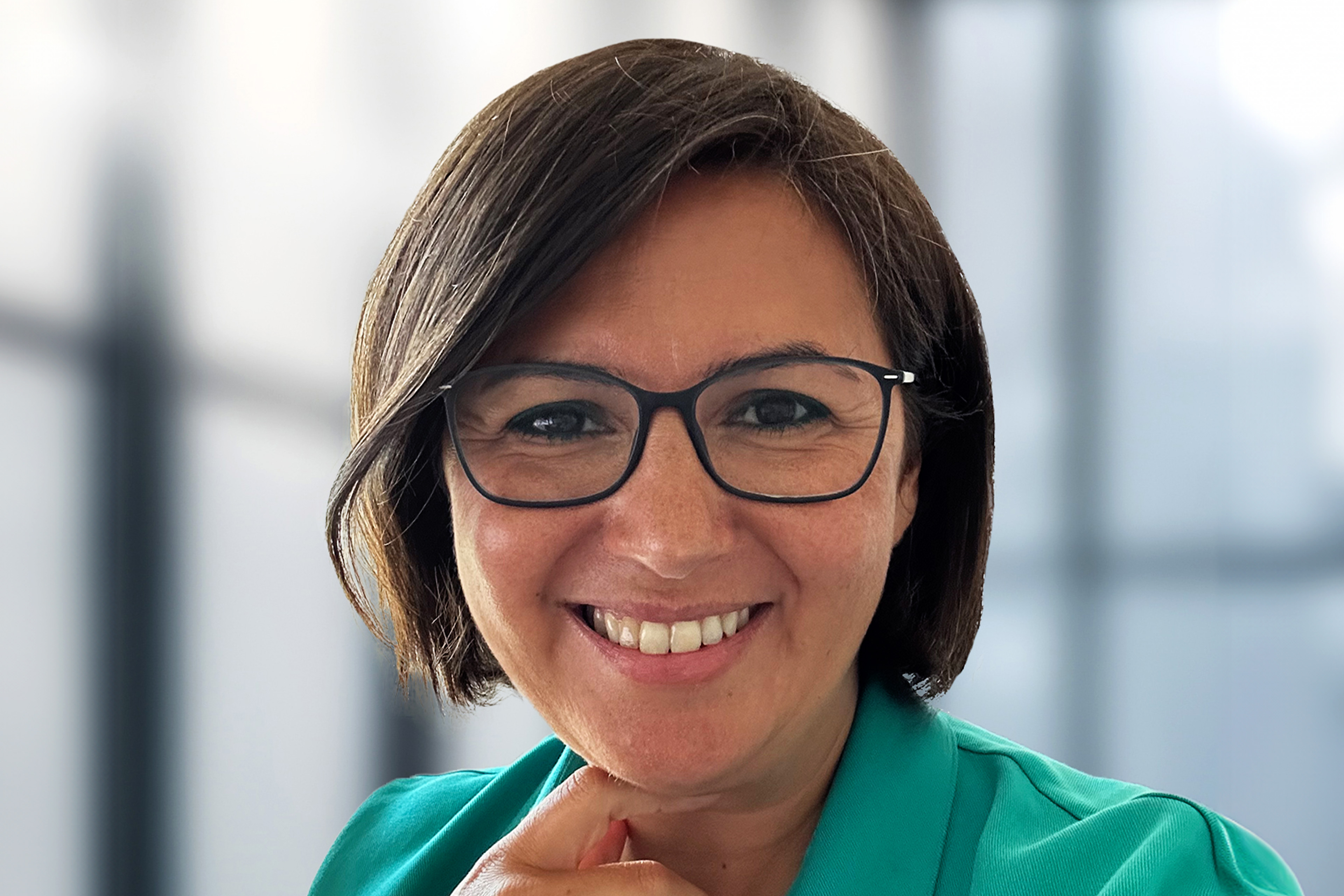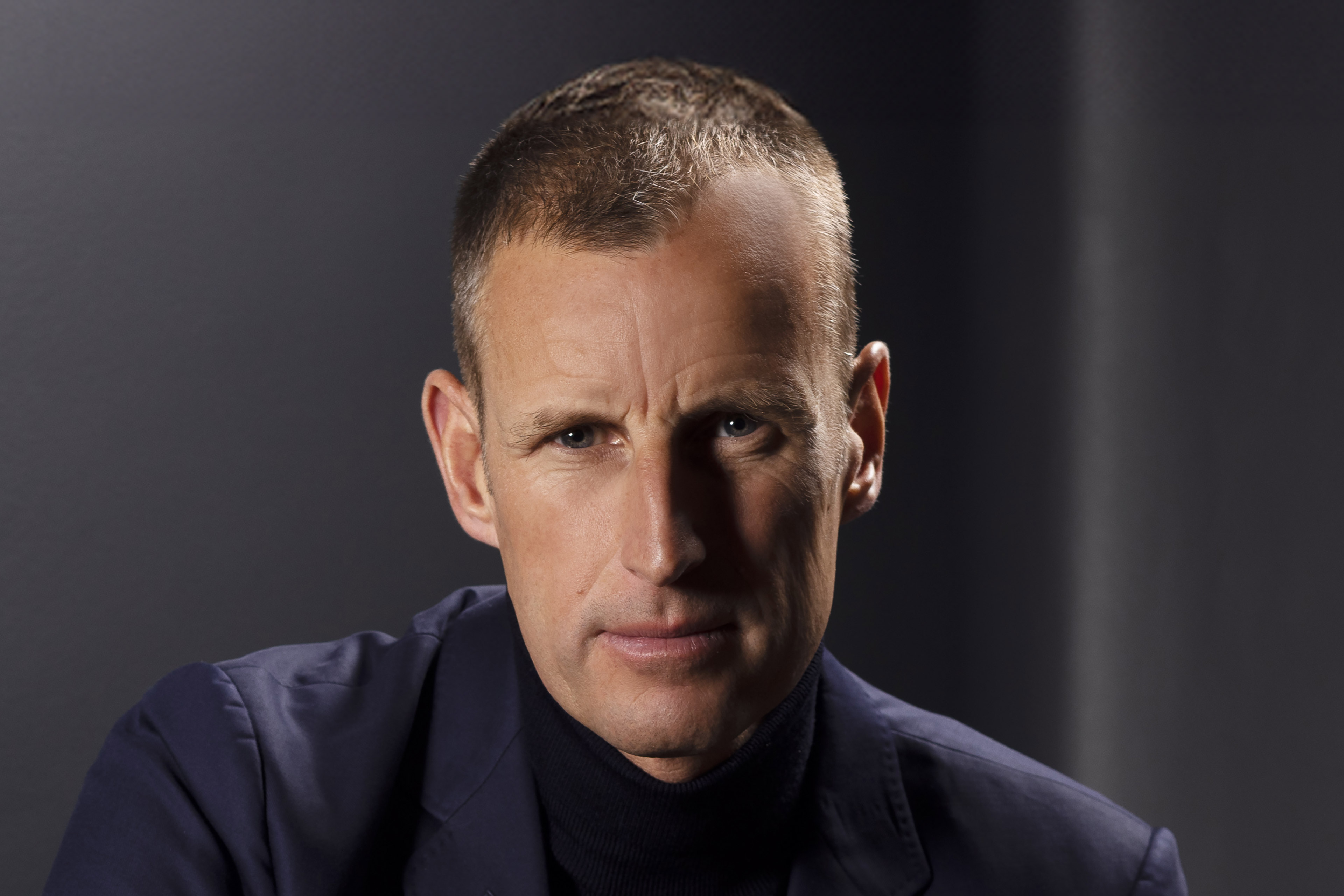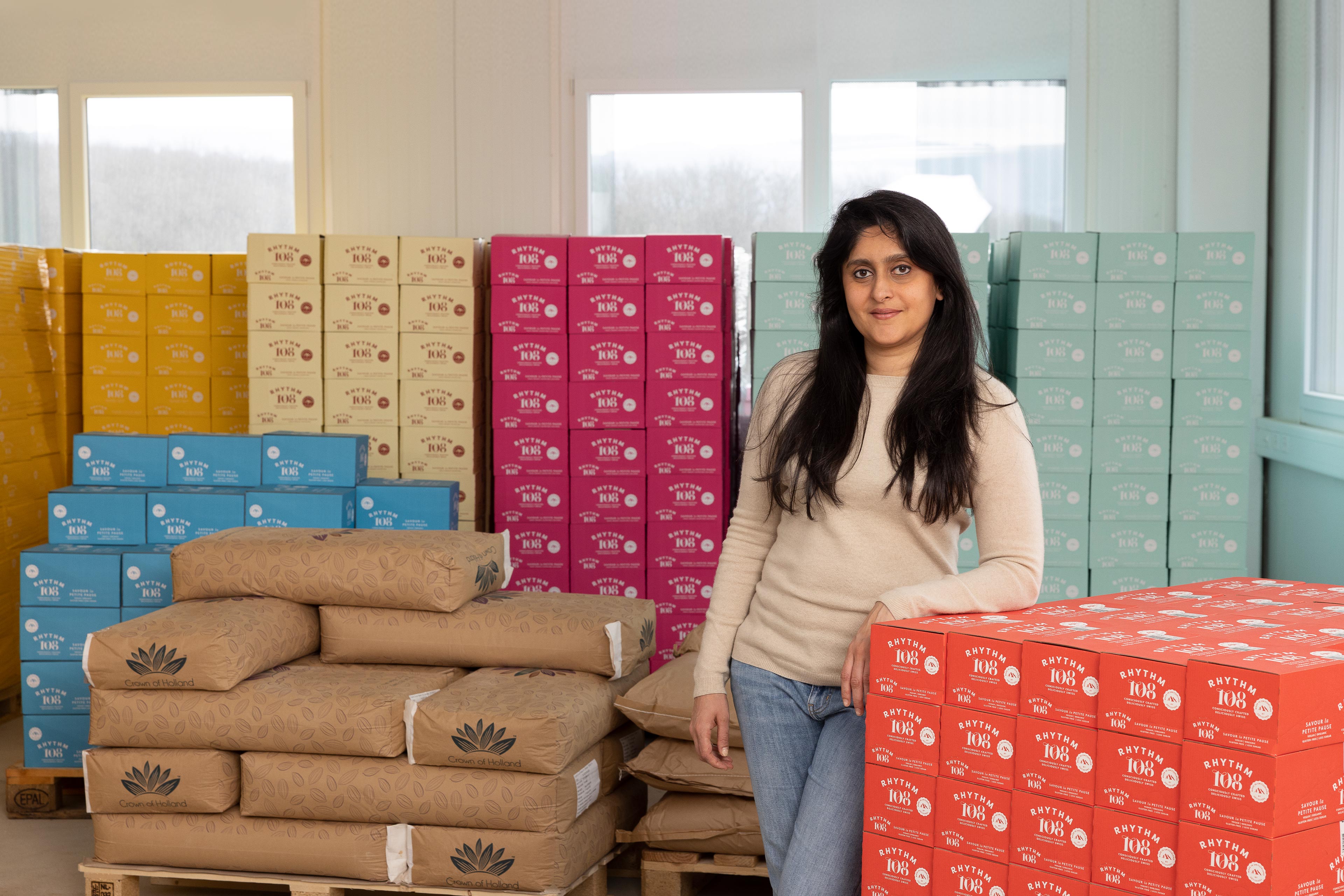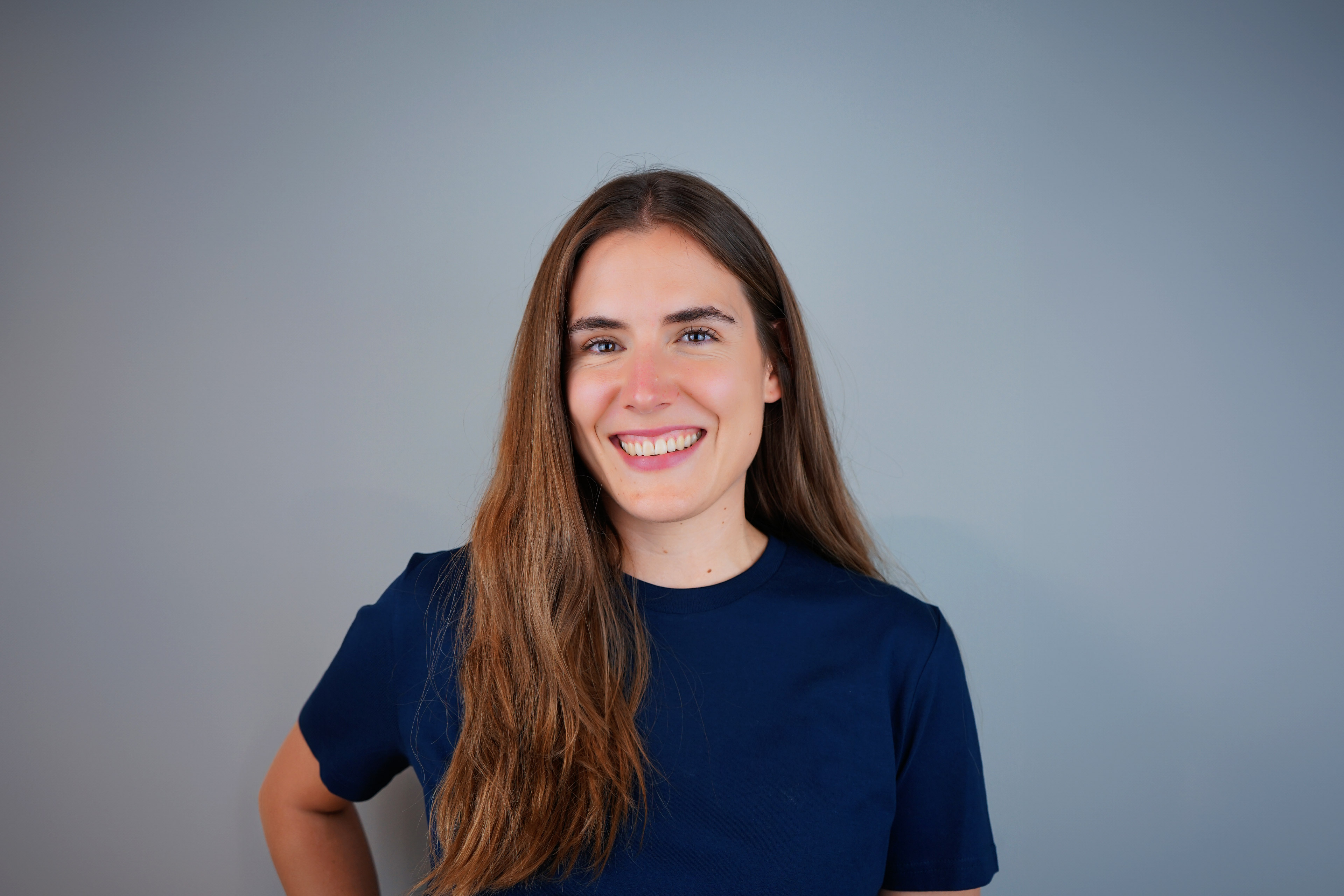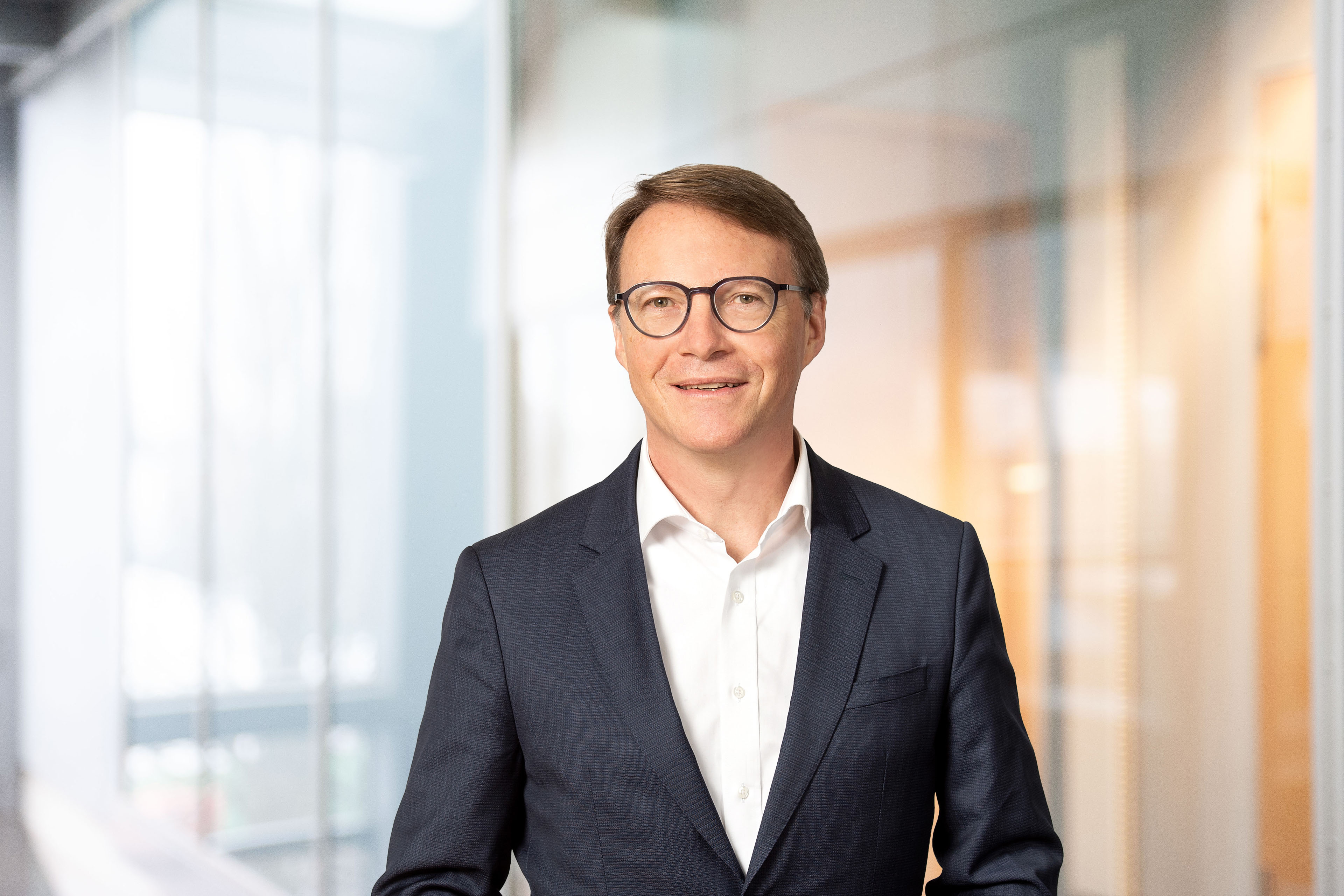EY refers to the global organization, and may refer to one or more, of the member firms of Ernst & Young Limited, each of which is a separate legal entity. Ernst & Young Limited is a Swiss company with registered seats in Switzerland providing services to clients in Switzerland.

“Our mission is to contribute to the sustainability of our suppliers’ wineries.
Jérôme Leupin
Jérôme Leupin has been General Manager of La Cave de Genève for almost five years. After studying economics at the University of St. Gallen, he completed a master's degree at the University of Gastronomic Sciences in Parma, Italy. He then launched his career in the world of gastronomy. Before devoting himself to production in his leadership role for La Cave de Genève, he worked for ten years in the distribution of food products, in particular wines, spirits, beers, drinks and tobacco.
Jérôme Leupin, General Manager of La Cave de Genève, describes the company’s responsibility to its consumers, suppliers and people and explains how the company is preparing to meet the challenges ahead.
What is the environment for La Cave de Genève and the company’s development?
It’s been a complicated situation in the wine industry for some years now, with very low average prices and volatile annual harvest volumes. Amid these fluctuations, managing the business is a complex task and a constant challenge. All this was compounded by the Covid crisis, where closures in the gastronomy sector saw us lose a considerable portion of our turnover overnight. For us, it was a matter of identifying which distribution channels were still available and developing those as much as possible. This is what we have done by optimizing our online sales over the past two years. This crisis period seems to be coming to an end and we can perhaps look forward to a more balanced year.
What trends do you observe in your sector and how does La Cave de Genève adapt to these?
If one thing is certain, it’s that wine consumption is decreasing and will continue to do so. Consumers are more health-conscious and aware of the environment, and they want to consume less and better. As producers, we need to adapt and respond to our customers’ demands as best we can. If we notice small but growing segments, such as sparkling or rosé wines, we need to seize the opportunity to develop these markets. There’s emerging demand for alcohol-free wine, and we are considering a possible partnership or investment in this area. Of course, the pie is shrinking every year, but there are ways to develop, innovate and increase our market share, especially in the face of foreign wines. This is where our strength lies: adapting and seizing opportunities.
Of course, the pie is shrinking every year, but there are ways to develop, innovate and increase our market share, especially in the face of foreign wines.
From year to year, we pursue a constant improvement strategy for the quality of our wines, and we’ve made big investments toward this. On the one hand, we are trying to gain market share in this “quality” segment. On the other, a structure like ours must also operate in markets with lower average prices, where the price really matters, and we are also competing at this level.
What are your main objectives for the coming quarter, six months and year?
At the commercial level, the main objective is to emerge from this crisis with our wines enjoying a stronger positioning. We have put a lot of effort into the quality of our products, branding and communication. For example, we launched a communication campaign in German-speaking Switzerland for our Baccarat. All this now needs to bear fruit. At the company level, having lain low and tried to reduce our costs as much as possible during the crisis, we are now entering a phase where we can envisage new developments, innovation, new fields of activity – and this is extremely motivating.
What are your customers’ expectations in terms of sustainable development?
Today’s consumer expects to find on the market a wine that is produced in the most sustainable way possible. For their part, winegrowers also want to move toward more sustainable production. It’s important to remember that when we plant vines, they will be there for 25 years. It is a major challenge to change the paradigm overnight. The environmental transition is the expectation of a whole generation. We owe it to ourselves to take this path and there are some interesting avenues to follow. Research is under way to develop disease-resistant grape varieties such as Divico, for example, which proved its worth during 2021, which was very humid and complicated for other grape varieties. These resistant grape varieties are one solution among others. Now it is a question of learning how to vinify them in an optimal way, and then get customers to recognize and accept the wines. We have to admit that climate change also has its upside here in Geneva as longer summers allow late grape varieties such as Cabernet Sauvignon, Syrah, Cabernet Franc or Merlot to benefit from optimal ripening until the end. The result is much fuller, more structured wines with a more complex palette of aromas.
The environmental transition is the expectation of a whole generation. We owe it to ourselves to take this path.
How do you see your responsibility as an employer for the health and wellbeing of your employees?
The health and wellbeing of our people is important to us. Apart from recent events and all the preventive measures linked to Covid, we try to establish a balance between work, private life and moments of relaxation within our company. We also want to convey the idea that the work we do at La Cave de Genève has purpose: our mission is to contribute to the sustainability of our suppliers’ wineries – family-owned estates that are sometimes hundreds of years old – so that they continue to produce grapes as they have always done. This is our responsibility. Our people feel it too, and identify strongly with our mission.
We strive to offer continuity and development opportunities to our winegrowing families in addition to our own employees. Currently, there are generational changes under way in the wine industry. The new generation is wondering whether or not to keep working with La Cave de Genève or to go it alone. We want to convince them to continue the adventure with us.
La Cave de Genève is the first winner of the Prix SVC Genève, which recognizes particularly inspiring companies. What did this mean to you?
The SVC award was a huge surprise, we never imagined we would have a place on the podium, let alone the top step. This prize is a huge honor. For one, it shows that that the way we think about entrepreneurship is appreciated and recognized. At the same time, it’s a very strong message of support for the Geneva wine industry, which has been fighting for years to get recognition for the quality of its wines. This prize, like all the others, is shared with the whole team of La Cave de Genève and with all our grape growers, it is the fruit of their labors. Obviously, we have invited them all to celebrate this prestigious award with us.
If you could see the world through the eyes of a living celebrity, who would you choose?
I don’t make a habit of looking at the world from the perspective of a single person. However, during my professional career I have had the privilege of meeting remarkable and inspiring people who still serve as an example for me today and continue to influence me in my business challenges.
Featured articles and interviews
Sebastian Tobler, Co-founder and CEO of GBY SA
Sebastian Tobler is co-founder and CEO of GBY SA, which has developed a new approach for the rehabilitation of people with reduced mobility. An automotive engineer by training and trade, Sebastian Tobler’s life took a new direction when a bike accident left him paralysed. Alongside his entrepreneurial activities, he heads the SCI-Mobility Lab as Professor at the Bern University of Applied Sciences.
Originally from Naples where she grew up and studied physics, Luciana Vaccaro moved to Switzerland in 1996 to complete a PhD in microengineering at EPFL. She held various positions in research and education at the universities of Neuchâtel and Lausanne before heading the Grant Office at EPFL. In 2013 she took the reins of HES-SO as rector. Last October, Luciana Vaccaro was elected president of the umbrella organization swissuniversities and started in her new position on 1 February.
Francisca Obrecht, Weingut Obrecht
Peter Rupp grew up in Sargans, Switzerland, around 20km south of the Hilti headquarters in Liechtenstein. He studied Economics in St. Gallen, then took a post-graduate degree in Engineering in Winterthur.
Peter Rupp grew up in Sargans, Switzerland, around 20km south of the Hilti headquarters in Liechtenstein. He studied Economics in St. Gallen, then took a post-graduate degree in Engineering in Winterthur.
Serra Bicak is Senior Vice President Reckitt Africa Middle East at Reckitt Hygiene. She has lived and worked in eight different countries for various roles during her career in fast-moving consumer goods. Serra Bicak is passionate about diversity, equity and inclusion (DE&I) and leads Reckitt Hygiene’s gender balance program.
Patrick Pruniaux, Chairman & CEO of Sowind Group
Patrick Pruniaux has a background in business administration and began his career in the watch industry at TAG Heuer. Always fascinated by innovation, he joined Apple in 2014 and oversaw the launch of the Apple Watch. Following a move to Kering in 2017, he managed the Ulysse Nardin and Girard-Perregaux watch brands. In 2022, Patrick Pruniaux spearheaded the historic management buyout and now serves as CEO of these two brands within Sowind Group.
Siddhi Mehta, founder and CEO of Rhythm 108, talked to us about sustainability, craftmanship – and how her company combines heritage and innovation to take the Swiss chocolate tradition into the future.
Judith Häberli, CGO and co-founder of Urban Connect as well as EY Entrepreneur Of The Year™ 2023 Switzerland winner in the category "Emerging Entrepreneur", shares her motivation for starting a corporate mobility platform and explains why real change only happens when companies work together.
Thomas Fürer has served ABB for 22 years, including 14 years in his current role as Group Head of Tax. A Certified Swiss Fiduciary Expert and Certified Swiss Tax Expert, he takes a keen interest in technology and digitalization in the tax function and beyond.



